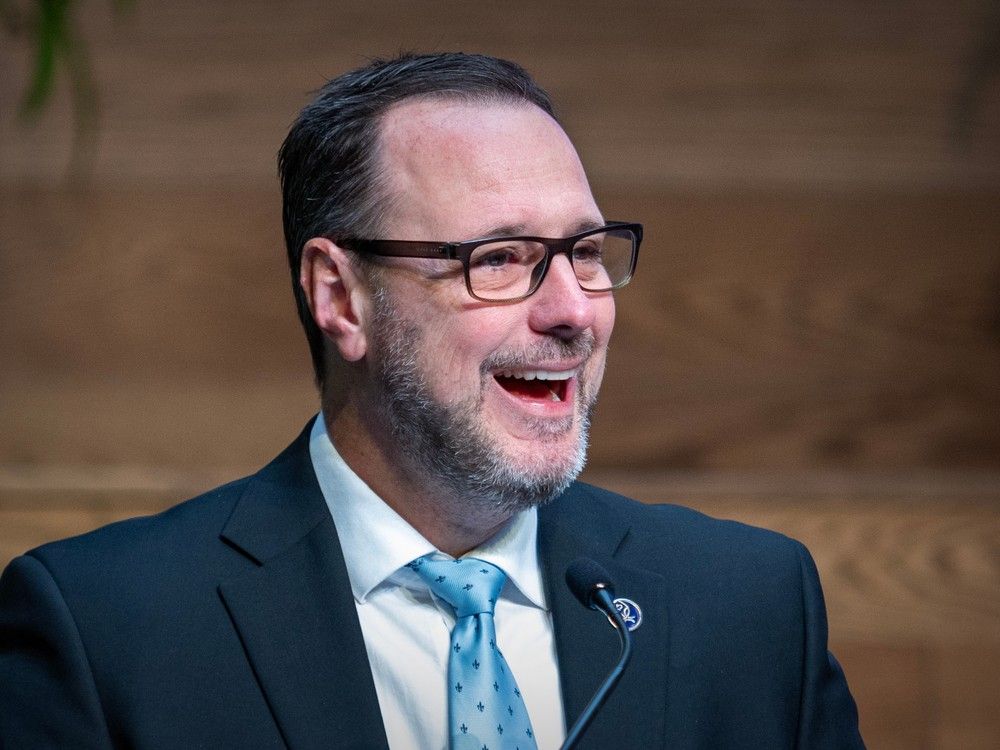
Article content
That, he argued, is good because it is a sign Quebec is reversing the decline of French in the CEGEP system.
“We are seeing the effects,” Roberge told reporters at the legislature. “What we see is that the gap will grow every year. What we’ve done is right and is proven right and, if we continue, we will reverse the decline of French in CEGEPs.
“We have the first progress, and if we project into the future we see we have found the right recipe.”
Roberge was commenting on data from Quebec’s ministry of higher education showing the proportion of students attending English CEGEPs in Quebec has dropped from 17.8 per cent in 2020-2021 to 16.8 per cent in 2023-2034.
The data includes a projection showing the drop will continue in the coming years to hit 14.6 per cent in 2023-2024.
And because of a clause in the overhauled Charter of the French Language via Bill 96, the level is not allowed to grow back.
That automatically means it will be harder for young francophones and allophones to enrol in the English CEGEP system, which now has to give priority to anglophones or English-language certificate holders.
Article content
Roberge has said in the past that the changes amount to applying the rules of the charter in the CEGEP system. The government argues that francophones and allophones going to the English system are more apt to transfer into the anglophone world, an assertion that is disputed.
The trend is the reverse in French CEGEP network where the percentage in 2020-2021 was 82.2 per cent. It is projected to rise to 85.4 per cent in 2030-2031.
“We have a lot to do to stop the decline in French in cultural ways and in the workplace, but what we’ve done in CEGEPs must continue,” Roberge said, adding the number of students going to English CEGEP will never go above the current level, which is about 30,000.
While Roberge was pleased, the opposition parties remained skeptical.
Greg Kelley, the Liberal MNA for the riding of Jacques-Cartier, objected to some of the language Roberge used to announce the data in an interview with Radio-Canada.
“What I did not like from what Mr. Roberge said is that if you’re a francophone student who goes to study in English, you’re in an English camp,” Kelley said.
“There are no camps in Quebec. We’re all Quebecers. I don’t think it helps to build a Quebec where everyone feels included. I think if a francophone student decided to study in English CEGEP it doesn’t make them any less French.”
The Parti Québécois MNA for Jean-Talon, Pascal Paradis, told reporters Roberge is getting a bit carried away in declaring he is reversing the decline of French when all he has is a drop in registrations in the English CEGEP system.
What matters more is the use of French in public and in the workplace, and Roberge had no indicators to boast about on those issues, Paradis said.
“It’s a bit early to start patting himself of the back,” Paradis said.
twitter.com/philipauthier
Share this article in your social network